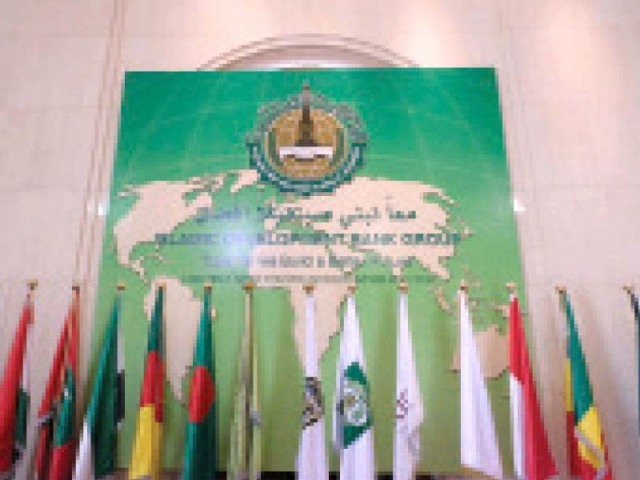Of IsDB’s $4.2b, only $600m new
Majority of $9.7b pledged during Geneva Conference are repurposed funds

Of the $4.2 billion worth loan that the Islamic Development Bank (IsDB) had pledged at the Geneva conference for the reconstruction of the flood-damaged infrastructure, $3.6 billion has been given for oil financing as part of its regular Pakistani operations, sources told The Express Tribune.
The IsDB has long been providing a $1.2 billion per annum facility under the International Islamic Trade Finance Corporation (ITFC)’s syndicated package, they added. The $3.6 billion will be utilised for the same purpose during the 2023-25 period, according to the sources.
The net additional financing for the flood-related activities by the IsDB will be hardly $600 million, they said.
After the conference, Prime Minister Shehbaz Sharif had said ‘that the bilateral and the multilateral creditors had announced pledges worth $9.7 billion for flood rehabilitation and reconstruction activities this month’. After excluding the $3.6 billion oil financing, however, the amount committed at the Geneva Conference will fall to $6.1billion.
Despite repeated requests, IsDB’s local office did not respond to the email or messages sent to seek the lender’s version.
When contacted, a spokesperson from the Economic Affairs Ministry said that “The government is still in process of receiving details of the pledges made by the bilateral and international partners and it is thankful for their commitments.”
At the International Conference on Climate Resilient Pakistan in Geneva, IsDB President, Dr Muhammad Al Jasser, had announced a $4.2 billion IsDB Group commitment to support Pakistan’s climate resilience efforts and development agenda, and the country’s 2025 vision over the next three years including $600 ordinary capital resources from the IsDB Group.
Jasser also expressed IsDB’s Group commitment to support Pakistan in achieving strong, inclusive, and sustainable socio-economic progress through green, resilient, and sustainable infrastructure, strengthened human capital, and reinforced governance systems.
According to the sources, a majority of the $9.7 billion pledges at the Geneva Conference were not new funds. Instead, the donors and the lenders have repurposed their existing financing pipelines towards flood-related activities.
The Express Tribune had reported earlier that the $2 billion that the World Bank announced at the Geneva Conference was also not new money. The World Bank had diverted $615 million from its existing projects and projects worth $1.3 billion were approved in December for flood-related activities.
The IsDB, however, does not provide all the funds from its own resources. Rather it arranges money from a syndicate of banks and then lends those funds to Pakistan.
It will be challenging for the government to even timely secure this $3.6 billion facility for oil financing, particularly after foreign commercial banks, in recent months, have shown reluctance in financing any Pakistani facility due to the country’s low credit rating. The three global credit rating agencies recently downgraded Pakistan due to the high risk of default.
During the first six months of the current fiscal year, IsDB disbursed only $261 million under the oil financing facility out of the $1.2 billion budgeted amount.
Pakistan has been facing serious funding issues in the absence of the International Monetary Fund (IMF) umbrella.
The government has been trying to convince the IMF to send its mission to Pakistan to start the negotiations for the 9th programme review. A successful completion of the review will unlock the $1.1 billion IMF funding in addition to clearing the way for other loans, from bilateral and multilateral creditors, to be disbursed.
One of the indications for accepting the IMF’s conditions will be that the government and State Bank of Pakistan will lift their administrative control over the value of the rupee. The IMF has been asking Pakistan to implement the market-based exchange rate, finding the current below Rs231 to a dollar value artificial.
Finance Minister Ishaq Dar, however, has been critical of the IMF’s demand to implement a market-based exchange rate.
Time, however, is not on Pakistan’s side. The government is left with only around $4.1 billion in reserves ahead of a $500 million repayment due this week. The government will have to move decisively on the IMF front by the end of this week, according to the sources.
The IsDB’s current portfolio of active projects comprises of 52 schemes and the lender has disbursed $16 million during the July-December half of the current fiscal year.
Published in The Express Tribune, January 25th, 2023.
Like Business on Facebook, follow @TribuneBiz on Twitter to stay informed and join in the conversation.



















COMMENTS
Comments are moderated and generally will be posted if they are on-topic and not abusive.
For more information, please see our Comments FAQ